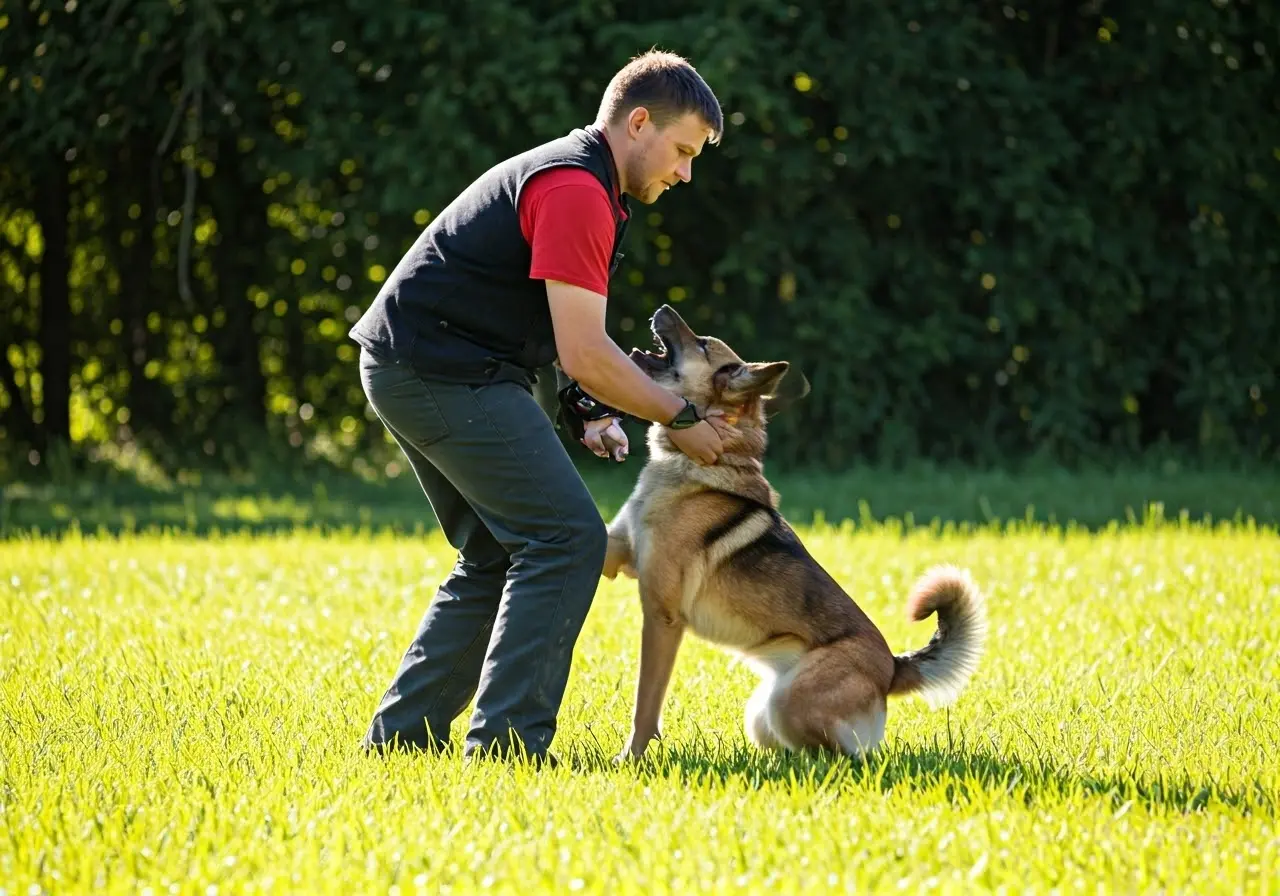Every dog is unique, and so are their behavioral quirks. While these intricacies often add to their charm, at times, they can also pose challenges. Whether you’re dealing with an overly anxious pup or a dog who just doesn’t seem to listen, a professional dog behavior consultation in Madison could be the lifeline you need. Let’s explore how these consultations can address some of the most common dog behavior issues.
1. Managing Excessive Barking
Excessive barking can quickly take a toll on your patience and your pet’s comfort. This behavior often stems from underlying issues such as anxiety, territorial instincts, or even boredom. Through a dog behavior consultation, you can discover the underlying causes and receive tailored solutions to manage this issue effectively. It could be as simple as adjusting your dog’s environment, like introducing interactive toys to keep them occupied, or as involved as a comprehensive training plan that addresses the root of their anxiety.
Many Madison residents find that creating a consistent training schedule works wonders for dealing with excessive barking. By setting regular times for walks and other activities, your dog learns to anticipate your routine, reducing anxiety-related barking. During a consultation, professionals can help establish an effective schedule that fits your lifestyle and meets your pup’s needs.
2. Addressing Separation Anxiety
Separation anxiety is a prevalent concern in many dogs, especially those who form strong attachments to their owners. When left alone, these dogs might bark excessively, chew on furniture, or even try to escape. In Madison, expert consultations can provide strategies to soothe your dog’s anxiety when you’re away. Techniques such as conditioning your dog to associate your departures with positive experiences or utilizing calming aids can significantly improve your dog’s comfort and confidence.
Additionally, understanding the importance of a structured training routine can be incredibly beneficial. By gradually extending the periods you’re away and monitoring your dog’s behavior, the process becomes more manageable, ensuring less stress upon leaving and returning home.
3. Curbing Aggression
Aggressive behavior can be alarming and dangerous, but with professional guidance in a dog behavior consultation, you can identify triggers and work towards a more peaceful demeanor for your dog. Aggression might arise from fear, dominance issues, or even frustration. It’s crucial to address these behaviors with patience and understanding.
Often, aggression is a sign of underlying stress or discomfort in particular situations. Utilizing behavior modification techniques can effectively manage aggression. Learning these strategies through a consultation will equip you with the knowledge to foster a calm environment and encourage positive interactions with other dogs and people.
4. Tackling Destructive Chewing
If your dog loves to sink its teeth into everything except their toys, you’re not alone. Destructive chewing not only ruins your belongings but could also harm your pet. Consultations can help direct this energy elsewhere and ensure your home stays intact. A dog behavior consultant might suggest more chew-friendly options or increased mental stimulation to keep their focus off your favorite shoes.
The key lies in understanding the motivation behind the chewing. For many dogs, chewing is a way to alleviate anxiety or boredom. By integrating chew-specific training techniques into your dog’s routine, you can transform their destructive energy into constructive, happy chewing.
5. Solving Leash Pulling
Walking a dog that constantly pulls on the leash can be frustrating and exhausting. A dog behavior consultation can introduce you to training methods that gently correct this behavior. Techniques such as using a front-clip harness or incorporating positive reinforcement for walking beside you can make your walks more enjoyable.
One effective method often recommended by professionals is the red-light-green-light game, where you stop when the leash is taut and only continue walking when it relaxes. Integrating such techniques into daily walks ensures progressive improvement, making outdoor excursions a joy once more.
6. Improving Socialization Skills
Socializing is a crucial aspect of a dog’s life, yet it’s an area where many dogs struggle. Learning how to slowly introduce your dog to new friends and environments effectively can be achieved with expert advice from a consultation. Recognizing specific socialization strategies for different environments, like dog parks or busy streets, is essential.
A consultation often sheds light on how playing with other dogs can significantly influence your dog’s behavior, encouraging positive attitudes towards unfamiliar situations. With guidance, you can identify signs of fear or stress early, ensuring safe and enjoyable social interactions.
7. Enhancing Focus and Obedience
Training can be challenging if your dog is easily distracted. Behavioral consultations provide strategies to enhance focus and obedience, making training an engaging experience. Tailored training schedules effectively address distraction issues, using methods that emphasize the dog’s attention on the task at hand.
During a consultation, professionals often suggest using specific commands and reward systems, ensuring consistency and encouraging responsiveness. These methods cultivate an understanding between you and your pet, reinforcing positive training outcomes and enhancing obedience.
8. Taming Resource Guarding
Resource guarding can lead to conflicts, but with a professional consultation, you can work on preventing resource-related aggression effectively. Understanding the nuances of this behavior through expert insights can help identify what specifically triggers this guarding instinct in your dog, be it possessions, space, or people.
A professional in Madison can provide targeted strategies for treatment and prevention, ensuring your dog views interactions over precious resources as non-threatening. By fostering a sense of security surrounding their valued items, your dog learns to trust rather than guard.
9. Correcting Potty Training Challenges
Potty training can be a trying phase for many pet owners, but it can become less daunting with professional insights. From understanding your pup’s behavior to anticipating their needs, consultations can provide a framework to effectively and humanely coach your dog in this crucial stage.
Many Madison residents have found success by incorporating specific training tips shared during consultations. By establishing consistent potty breaks and positive reinforcement, owners can create a rewarding routine for their dogs, leading to quicker, successful potty training.
10. Easing Fearfulness
Fearful dogs often struggle in everyday situations, and understanding how to address fear triggers is vital. Consultations emphasize methods to gradually build your dog’s confidence, encouraging exploration in a controlled and supportive environment.
By identifying and reducing stressors and slowly introducing your dog to new experiences, you can transform hesitant behaviors. With professional guidance, you can frame these experiences positively, ultimately fostering a robust and confident demeanor.
11. Managing Over-Excitability
Over-excited dogs can transform calm moments into chaos, making managing these energy bursts crucial. A consultation can provide you with essential tips to structure your dog’s daily activities, using calm-command training and regimens that channel hyperactivity into productive behavior.
Utilizing patience and timing, expert consultations often suggest implementing regulated play sessions and commands that prioritize energy release in constructive ways. Understanding how to balance your dog’s physical and mental stimulation needs can curb overly-excitable behaviors, leading to tranquil and happy home life.
12. Overcoming Digging Habits
Dogs dig for a variety of reasons, from seeking comfort to hunting for entertainment. While this may be instinctual, it often causes distress to pet owners. Learning how to redirect this behavior through guided sessions with a behavior specialist can be transformative. Innovative solutions can be presented during consultations, such as introducing designated digging areas or increasing specific training activities.
Behavior consultations in Madison can offer specific insights into breaking down the desire to dig and focusing that energy positively. Techniques like enhancing your dog’s exercise regime and ensuring sufficient stimulation can all work in tandem to address and reduce digging tendencies. With these practices, you can maintain a pristine backyard while fulfilling your dog’s curious nature.


